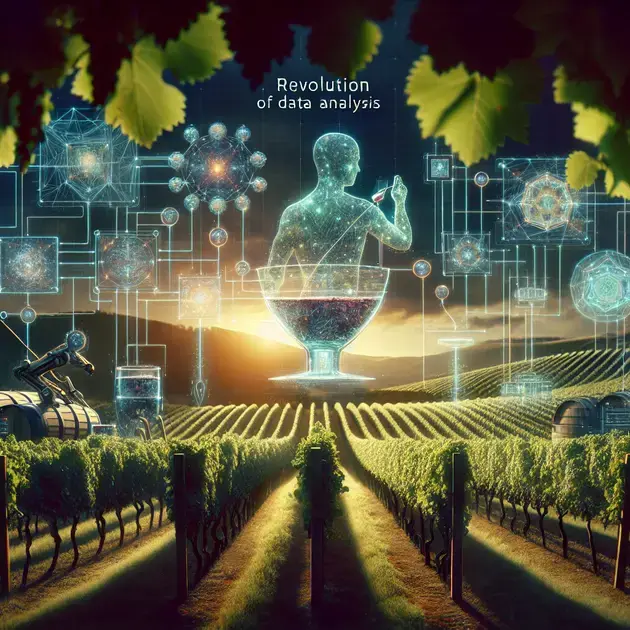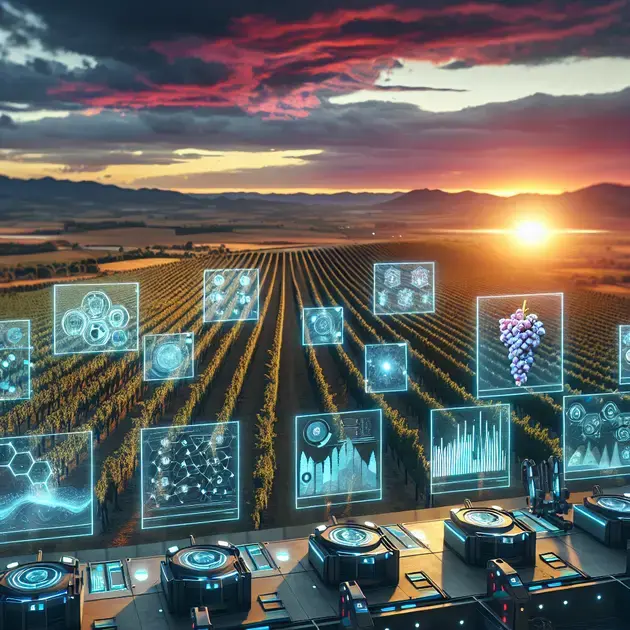
When it comes to SEO optimization, staying informed about the latest trends and strategies is crucial for achieving success in digital marketing.
With search engines constantly updating their algorithms, it’s essential to adapt your strategies to ensure your website remains visible and competitive in the online landscape.
The Impact of AI on SEO Strategies
Artificial Intelligence (AI) is revolutionizing the field of Search Engine Optimization (SEO) by providing more efficient ways to analyze data, identify trends, and optimize strategies. One impactful aspect of AI on SEO strategies is its ability to process large volumes of data quickly and accurately. This allows marketers to gain insights into user behavior, keywords performance, and competition analysis at a faster pace than traditional methods.
A step-by-step approach to leveraging AI in SEO strategies involves first identifying the key areas where AI can be implemented, such as content optimization, keyword research, and performance tracking. Tools like Google’s RankBrain and MarketMuse use AI algorithms to analyze content relevance and user intent, helping marketers create more targeted and engaging material.
Next, integrating AI-powered tools into the SEO workflow is essential. Platforms like SEMrush and Ahrefs offer AI-driven features for backlink analysis, site audits, and keyword suggestions. By incorporating these tools into daily SEO practices, businesses can improve their search rankings and attract more organic traffic.
Regular monitoring and optimization based on AI insights are crucial for staying ahead in the competitive SEO landscape. AI tools like BrightEdge and Conductor provide real-time data and recommendations for adjusting strategies, targeting new keywords, and improving overall website visibility.
In conclusion, the impact of AI on SEO strategies is undeniable, offering new opportunities for efficiency, precision, and success in digital marketing. By embracing AI technologies and integrating them into SEO practices, businesses can stay competitive and adapt to the ever-changing online environment.
Enhancing User Experience with Artificial Intelligence
Artificial Intelligence (AI) plays a significant role in enhancing user experience on websites and digital platforms. By leveraging AI tools and algorithms, businesses can personalize content, streamline navigation, and improve overall engagement for visitors. One key benefit of using AI for user experience enhancement is the ability to analyze user behavior in real-time and adapt website features accordingly.
To enhance user experience with AI, the first step is to implement chatbots and virtual assistants on websites. Tools like Chatfuel and ManyChat provide easy-to-use interfaces for creating AI-powered chatbots that can answer customer queries, guide users through the site, and improve customer service.
Another way to enhance user experience with AI is through personalized recommendations and content delivery. Platforms like Netflix and Amazon use AI algorithms to analyze user preferences and behaviors, offering tailored suggestions and creating a more engaging browsing experience.
Utilizing AI for website optimization, such as image recognition and voice search capabilities, can also enhance user experience. Tools like CloudSight and Google Voice Search enhance accessibility and convenience for users, making it easier to find information and navigate websites.
In summary, enhancing user experience with artificial intelligence opens up a myriad of possibilities for businesses to create tailored, engaging interactions with their audience. By incorporating AI tools and strategies into website design and content delivery, businesses can improve customer satisfaction, increase retention rates, and ultimately drive growth.
AI Tools to Optimize SEO Performance
AI-powered tools have revolutionized the way businesses optimize their SEO performance by providing advanced analytics, automation, and insights for better decision-making. Leveraging these tools can help marketers identify opportunities, track performance metrics, and stay ahead of the competition in search engine rankings. One key advantage of using AI tools for SEO optimization is the ability to analyze vast amounts of data and generate actionable recommendations quickly.
When implementing AI tools to optimize SEO performance, start by conducting a comprehensive audit of your website’s current status and performance. Platforms like Moz and Screaming Frog offer AI-driven site analysis features that can identify SEO issues, technical errors, and opportunities for improvement.
Next, utilize AI tools for keyword research and content optimization. Platforms like Clearscope and Surfer SEO use AI algorithms to analyze top-performing content, suggest relevant keywords, and optimize on-page elements for better search visibility.
Monitoring and tracking SEO performance using AI tools is essential for measuring success and making informed decisions. Tools like Botify and DeepCrawl provide in-depth insights into website performance, indexation issues, and organic traffic trends, enabling marketers to adjust strategies for optimal results.
In conclusion, AI tools play a crucial role in optimizing SEO performance by providing data-driven insights, automation capabilities, and predictive analytics for informed decision-making. By incorporating AI tools into their SEO strategies, businesses can enhance their online visibility, attract more organic traffic, and achieve sustainable growth in search engine rankings.
Unlocking the Potential of Machine Learning
Unlocking the potential of machine learning is essential for businesses looking to stay competitive in today’s data-driven world. By leveraging the power of machine learning algorithms, companies can analyze large volumes of data to gain valuable insights and make informed decisions. Whether it’s predicting customer behavior, optimizing operations, or identifying new market trends, machine learning can provide a significant competitive advantage. One example of this is in the wine industry, where machine learning algorithms can be used to analyze factors that contribute to the price of the world’s most expensive wines.
Machine learning algorithms can process and analyze data much faster and more accurately than traditional methods, allowing businesses to uncover patterns and trends that may have otherwise gone unnoticed. In the context of the wine industry, machine learning can help identify the key factors that influence the price of rare and sought-after wines. By understanding these factors, winemakers and distributors can make strategic decisions to maximize profits and meet consumer demand.
Furthermore, machine learning can enable businesses to personalize their offerings and tailor them to individual customer preferences. In the case of luxury wines, this could mean offering personalized recommendations based on a customer’s past purchases, preferences, and browsing history. By leveraging machine learning in this way, businesses can enhance the customer experience and increase customer loyalty.
Overall, unlocking the potential of machine learning is crucial for businesses looking to harness the power of data and gain a competitive edge. By investing in machine learning technologies and expertise, companies can unlock new insights, streamline operations, and drive innovation in their respective industries.
Implementing machine learning in the wine industry can revolutionize how businesses approach pricing, marketing, and customer engagement. By leveraging machine learning algorithms to analyze the factors that contribute to the price of the world’s most expensive wines, businesses can gain a competitive advantage and stay ahead of the curve in a rapidly evolving market.
Revolutionizing Data Analysis with AI
Revolutionizing data analysis with AI has the potential to transform how businesses extract insights from their data and make data-driven decisions. By harnessing the power of artificial intelligence, businesses can analyze complex datasets at scale, identify patterns, and generate actionable insights in real-time. In the context of the wine industry, AI can be used to analyze market trends, consumer preferences, and the factors that influence the pricing of premium wines.
AI-powered data analysis tools can automate time-consuming tasks and free up human resources to focus on more strategic activities. For example, AI algorithms can automatically categorize and tag data, identify correlations between different variables, and generate predictive models to forecast future trends in the wine market. This level of automation can revolutionize how businesses approach data analysis and unlock new opportunities for growth and innovation.
Furthermore, AI can enhance the accuracy and reliability of data analysis by reducing human error and bias. In the wine industry, AI algorithms can analyze large datasets to identify patterns that contribute to the pricing of luxury wines, helping businesses make more informed decisions and optimize their pricing strategies. By revolutionizing data analysis with AI, businesses can gain a deeper understanding of their data and extract valuable insights to drive business success.
Overall, AI has the potential to revolutionize data analysis across industries, including the wine market. By leveraging AI-powered data analysis tools, businesses can uncover hidden patterns, predict consumer behavior, and make data-driven decisions with confidence. Revolutionizing data analysis with AI is essential for businesses looking to stay ahead of the competition and thrive in today’s data-driven economy.
Future-proofing Businesses with Automation
Future-proofing businesses with automation is crucial in a rapidly evolving market landscape where businesses are faced with increasing competition and changing consumer demands. By leveraging automation technologies, businesses can streamline operations, reduce costs, and improve efficiency across all areas of their organization. In the wine industry, automation can be used to optimize supply chain management, enhance customer service, and improve the overall customer experience.
Automation technologies can automate repetitive tasks and processes, allowing employees to focus on more strategic activities that drive business growth. For example, in the context of the wine industry, automation can streamline inventory management, order processing, and logistics, enabling businesses to operate more efficiently and effectively. By future-proofing businesses with automation, companies can adapt to changing market dynamics and position themselves for long-term success.
Furthermore, automation can enhance the accuracy and consistency of business operations by reducing the risk of human error and improving overall data quality. In the wine industry, automation can ensure that pricing strategies are implemented consistently, orders are processed accurately, and customer inquiries are addressed promptly. By future-proofing businesses with automation, companies can enhance their competitive advantage and deliver a seamless customer experience.
Overall, future-proofing businesses with automation is essential for companies looking to drive innovation, increase efficiency, and adapt to the changing needs of the market. By embracing automation technologies, businesses can optimize their operations, improve decision-making processes, and position themselves for sustainable growth in an increasingly competitive business environment.
Conclusion
In conclusion, unlocking the potential of machine learning, revolutionizing data analysis with AI, and future-proofing businesses with automation are crucial steps for companies to stay competitive and thrive in the data-driven economy of today. By leveraging machine learning algorithms, businesses can gain valuable insights, optimize operations, and stay ahead of market trends. This can lead to increased profitability and enhanced customer satisfaction in industries such as the wine market.
Similarly, revolutionizing data analysis with AI offers businesses the opportunity to extract actionable insights in real-time, automate tasks, and improve decision-making processes. With AI-powered data analysis tools, businesses can enhance accuracy, identify patterns, and predict consumer behavior, ultimately driving growth and success. This is particularly relevant in the wine industry, where understanding market trends and consumer preferences is critical for pricing strategies and customer engagement.
Moreover, future-proofing businesses with automation is essential for long-term success in a dynamic market landscape. By streamlining operations, reducing costs, and improving efficiency through automation technologies, companies can adapt to evolving consumer demands and drive innovation. In the wine industry, automation can optimize supply chain management, enhance customer service, and ensure consistent pricing strategies, ultimately improving competitiveness and customer experience.
